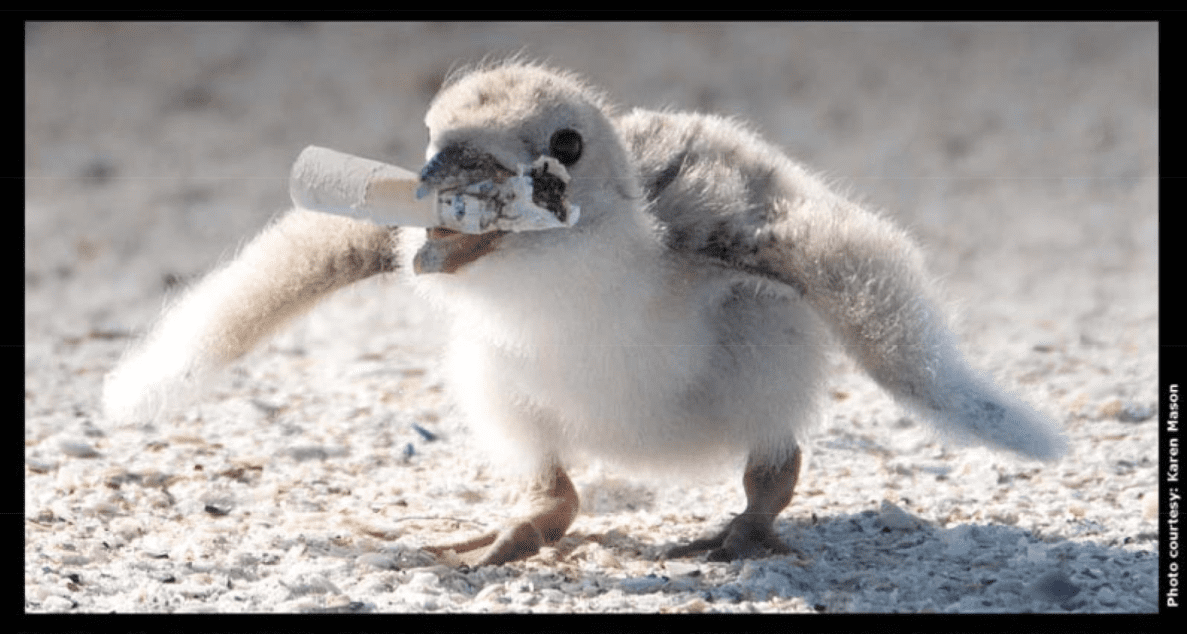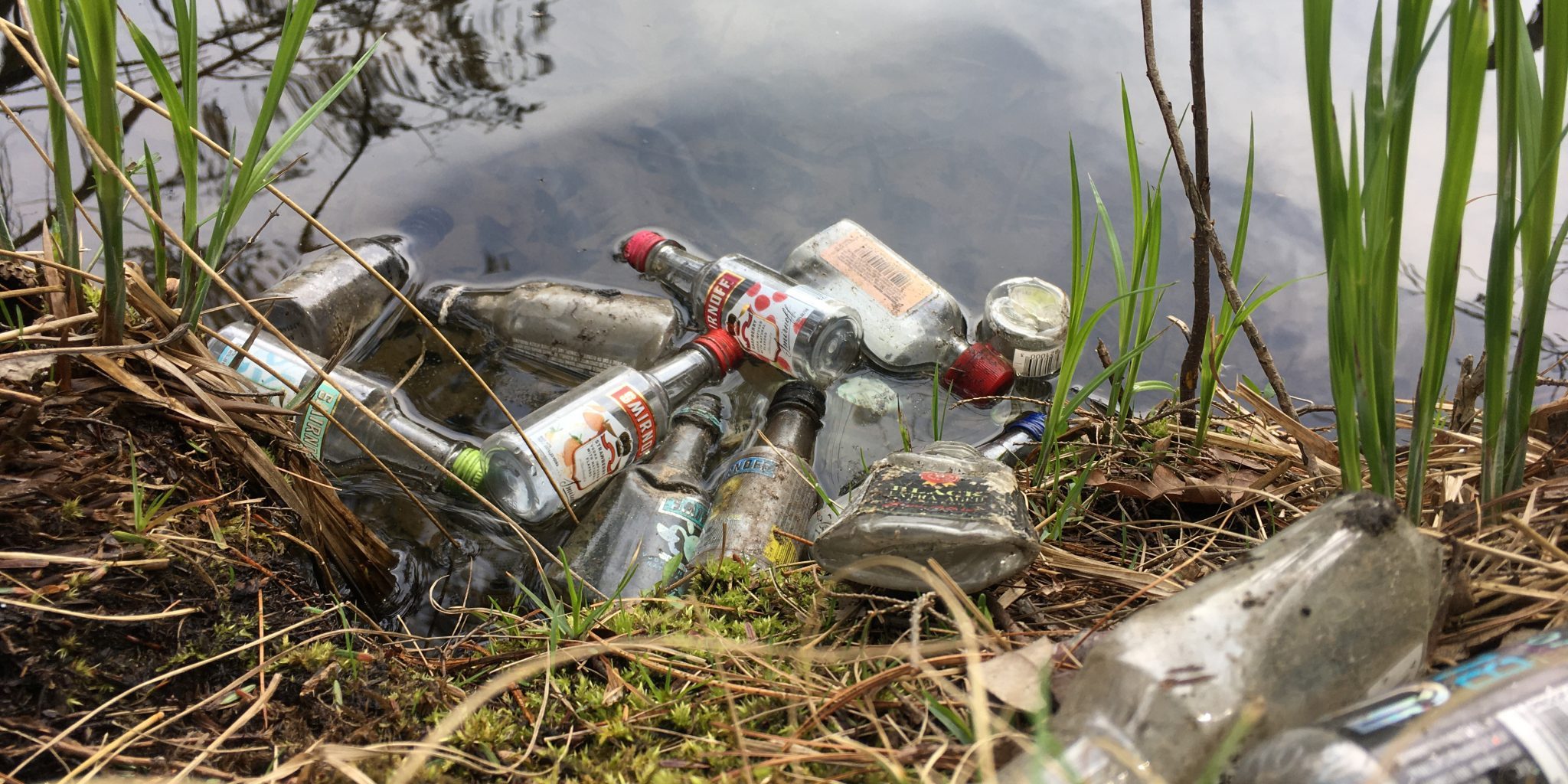Litter
Think It's Just One Butt On The Ground? To A Fish Or Bird It Can Be Deadly.
Help keep our waters clean... put your butt in the trash.

Captured by Audubon member Karen Mason, the image above is one in a series that shows a mother bird feeding a cigarette butt to its baby. Audubon officials have noted that the image provides proof for what scientists have long suspected—that wild birds mistake the pervasive and harmful litter for food.
Littered cigarette butts typically wash with the next rainfall into storm drains, through pipes, and out to nearby rivers, streams, and lakes. In our local waters, cigarette butts can be highly toxic to fish and other animals. A single butt can contaminate between 500 and 1,000 liters of water with compounds like nicotine and heavy metals, which can be devastating to fish populations. Even worse, the filter is made of a non-biodegradable form of plastic called cellulose acetate, which deteriorates and disperses as plastic microfibers.
The fix is simple. When you are done with your next smoke, extinguish the butt entirely and then dispose of it properly in the trash.
For more information, check out this two-minute Canadian Broadcasting video:
THINK SMALL DOESN’T MATTER? LITTLE THINGS ADD UP.
Help keep our waters clean…put your nip in the trash.

While miniature in size, plastic nip bottles are creating monumental problems. Often tossed out of car windows, nip bottles accumulate along roadways and wash with the next rainfall or snowmelt into nearby rivers and streams. The Connecticut River Conservancy’s Source to Sea Clean Up has collected more than 16,566 of these small plastic bottles over the past 5 years. Local citizen efforts in Agawam, Easthampton, and other locations have also collected thousands of littered nip bottles.
In more urban locations, discarded nip bottles are carried by flows into nearby storm drains. Public works officials in the Pioneer Valley region indicate that roadside storm drains in certain locations regularly fill with nip bottles.
Plastic litter in any form is a problem for cities and towns. Storm pipes can get clogged and local waterways become polluted. The Connecticut River Conservancy website notes, “
When plastic enters the river, it breaks up into tiny pieces, but never fully degrades. As a result, our waterways become polluted with large quantities of what is known as “microplastic.” Over time, these particles make their way to the large floating garbage patches in our oceans. Along the way, wildlife may become entangled in it or try to eat it, which can lead to death.
The fix is simple. Toss nip bottles into the trash bin.
Note that given their small size, nip bottles are not recyclable in Massachusetts as they jam sorting machinery.
Interested in learning more? Check out these links:
- A study that found that plastics pollution changes the growth and development of juvenile shortnose sturgeon, a federally endangered fish found in parts of the Connecticut River: https://www.ncbi.nlm.nih.gov/pmc/articles/PMC4051353/
- Daily Hampshire Gazette article about efforts on nip bottles in Easthampton: www.gazettenet.com/Easthampton-installs-nip-bin-to-help-with-the-city-s-surplus-of-the-littered-item-45220635
- Container Recycling Institute’s award to John W. “Jack” Coughlin, Jr. for his local and state-wide litter activism:
https://www.container-recycling.org/index.php?option=com_content&view=article&id=723&Itemid=1298
